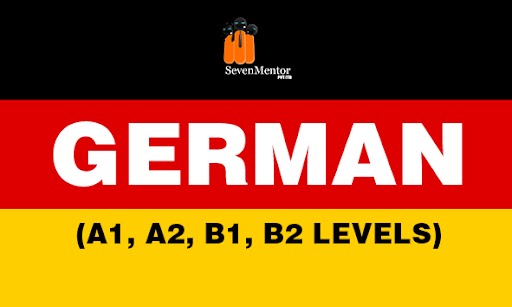Translators and Interpreters: Similarities and Differences
Ask 10 random people you know about the differences between translators and Interpreters, I’m sure 7 or 8 out of them would say there aren’t any differences. To the general public, Translators and Interpreters are just two distinctive terms for people working on translating languages. In fact, this belief is not completely wrong, but not 100% right either.
In today’s post, we will dig deeper into the similarities and differences between Translators and Interpreters.
But first, let’s check out the definition of two terms:
A Translator is a linguist who converts written text from a source language to a target language.
An Interpreter is a person who converts oral messages from one language to another and vice versa.
The similarities between Translators and Interpreters
Both Translators and Interpreters work as an intermediary between two languages. Translators and Interpreters convert words from a source language to a target language. In short, they bridge the language gap between people in two different countries and cultures.
Not everyone can become a translator and interpreter. Translation and Interpretation require long training, practices, and experiences. Owning suitable working skills and deep knowledge of languages and cultures along with linguistic qualifications and certificates is indispensable to both Translators and Interpreters.
The differences between Translators and Interpreters
(1) The Skills Required
Translators work with written documents daily so there’s no doubt that they need good writing skills. Because in the end, smooth, accurate, and error-free documents are the aim of translation. The meaning of written content might vary regarding different contexts, thus it’s a must for translators to read and research reference materials to support the translating process. A great researching skill along with the ability to use CAT tools helps translators complete the projects quicker and remain high quality.
On the other hand, Interpreters listen to the speakers and translate the message simultaneously on the spot. It requires excellent listening and public speaking abilities. More than that, since having to translate almost immediately, Interpreters also need quick decision-making skills to resolve unexpected situations. Unlike Translators who take help from dictionaries or information on the Internet, Interpreters need to rely on his or her own knowledge and experience. Therefore, improving self-knowledge and skills is essential.
(2) The level of accuracy
As translators are given a suitable period of time to translate and self-review a source file, together with the help of editors, proofreaders, and dictionaries, the level of accuracy is significantly high. In some cases, the translation should be “perfect” and ready to publish.
Meanwhile, Interpreters are not required to translate exactly every word in the speech. They can paraphrase the words as long as the core meanings remain. Of course, to guarantee the accuracy of the translated speech, Interpreters should prepare well before the conference or meeting.
(3) One-way and Two-way translation
As mentioned before, a qualified Translator should be a native of the target language. For example, when translating documents from English to Japanese, native Japanese translators should take the task. But there’s no vice versa. If it’s a Japanese to English project, you shouldn’t assign it to a native Japanese linguist.
In contrast, two-way translation is a must for Interpreters. Interpreters are expected to translate back and forth in at least 2 languages. An Interpreter for a Korea – Vietnam hospital, say, is able to translate from Korean to Vietnamese so that the patients can understand the doctors’ advice or diagnosis. At the same time, he or she is required to translate the patients’ condition and feedback from Vietnamese to Korean to the doctors.
The infographic below wraps up the most notable differences between the two positions – translators and interpreters:
Work with a Professional Translation Company
GTE Localize is a fast-growing translation and localization agency. We have a network of native linguists with at least 5 years of experience.
Send your CV to vm@gtelocalize.com to join our pool of professional linguists if you want to work for a reputable translation and localization firm.
For more translation and localization needs, contact us here for a free quote!
Don’t hesitate to download our free white paper here if you want to find all the vital answers about website localization planning and preparation.
#GTE #GTELOCALIZE
https://forum.ikariam.gameforge.com/user/28036-gtelocalize/
https://gamebanana.com/members/3825238
https://www.smogon.com/forums/members/gtelocalize.691672/about
https://www.gutekueche.at/profil/gtelocalize
https://www.mtb-news.de/forum/m/gtelocalize.641978/aboutTranslators and Interpreters: Similarities and Differences
Ask 10 random people you know about the differences between translators and Interpreters, I’m sure 7 or 8 out of them would say there aren’t any differences. To the general public, Translators and Interpreters are just two distinctive terms for people working on translating languages. In fact, this belief is not completely wrong, but not 100% right either.
In today’s post, we will dig deeper into the similarities and differences between Translators and Interpreters.
But first, let’s check out the definition of two terms:
A Translator is a linguist who converts written text from a source language to a target language.
An Interpreter is a person who converts oral messages from one language to another and vice versa.
The similarities between Translators and Interpreters
Both Translators and Interpreters work as an intermediary between two languages. Translators and Interpreters convert words from a source language to a target language. In short, they bridge the language gap between people in two different countries and cultures.
Not everyone can become a translator and interpreter. Translation and Interpretation require long training, practices, and experiences. Owning suitable working skills and deep knowledge of languages and cultures along with linguistic qualifications and certificates is indispensable to both Translators and Interpreters.
The differences between Translators and Interpreters
(1) The Skills Required
Translators work with written documents daily so there’s no doubt that they need good writing skills. Because in the end, smooth, accurate, and error-free documents are the aim of translation. The meaning of written content might vary regarding different contexts, thus it’s a must for translators to read and research reference materials to support the translating process. A great researching skill along with the ability to use CAT tools helps translators complete the projects quicker and remain high quality.
On the other hand, Interpreters listen to the speakers and translate the message simultaneously on the spot. It requires excellent listening and public speaking abilities. More than that, since having to translate almost immediately, Interpreters also need quick decision-making skills to resolve unexpected situations. Unlike Translators who take help from dictionaries or information on the Internet, Interpreters need to rely on his or her own knowledge and experience. Therefore, improving self-knowledge and skills is essential.
(2) The level of accuracy
As translators are given a suitable period of time to translate and self-review a source file, together with the help of editors, proofreaders, and dictionaries, the level of accuracy is significantly high. In some cases, the translation should be “perfect” and ready to publish.
Meanwhile, Interpreters are not required to translate exactly every word in the speech. They can paraphrase the words as long as the core meanings remain. Of course, to guarantee the accuracy of the translated speech, Interpreters should prepare well before the conference or meeting.
(3) One-way and Two-way translation
As mentioned before, a qualified Translator should be a native of the target language. For example, when translating documents from English to Japanese, native Japanese translators should take the task. But there’s no vice versa. If it’s a Japanese to English project, you shouldn’t assign it to a native Japanese linguist.
In contrast, two-way translation is a must for Interpreters. Interpreters are expected to translate back and forth in at least 2 languages. An Interpreter for a Korea – Vietnam hospital, say, is able to translate from Korean to Vietnamese so that the patients can understand the doctors’ advice or diagnosis. At the same time, he or she is required to translate the patients’ condition and feedback from Vietnamese to Korean to the doctors.
The infographic below wraps up the most notable differences between the two positions – translators and interpreters:
Work with a Professional Translation Company
GTE Localize is a fast-growing translation and localization agency. We have a network of native linguists with at least 5 years of experience.
Send your CV to vm@gtelocalize.com to join our pool of professional linguists if you want to work for a reputable translation and localization firm.
For more translation and localization needs, contact us here for a free quote!
Don’t hesitate to download our free white paper here if you want to find all the vital answers about website localization planning and preparation.
#GTE #GTELOCALIZE
https://forum.ikariam.gameforge.com/user/28036-gtelocalize/
https://gamebanana.com/members/3825238
https://www.smogon.com/forums/members/gtelocalize.691672/about
https://www.gutekueche.at/profil/gtelocalize
https://www.mtb-news.de/forum/m/gtelocalize.641978/about





